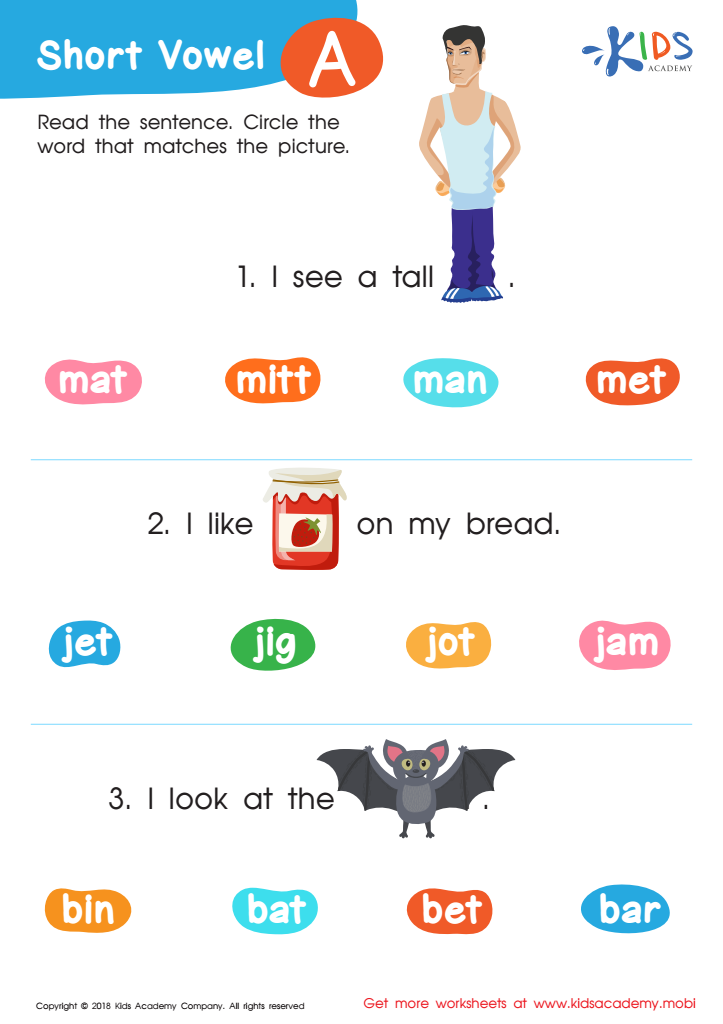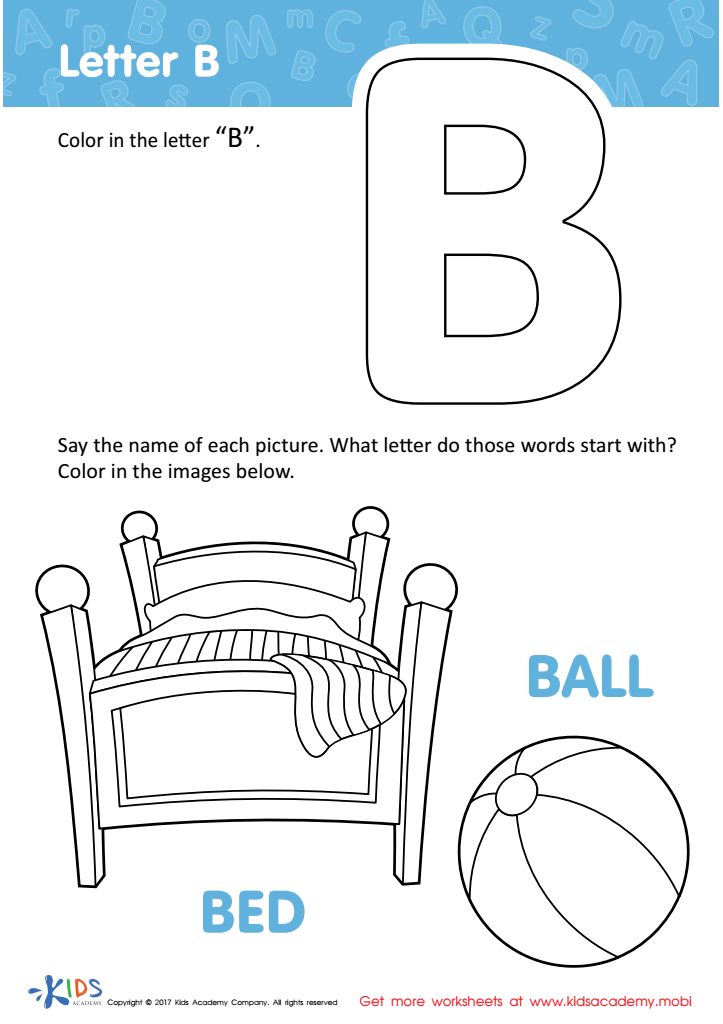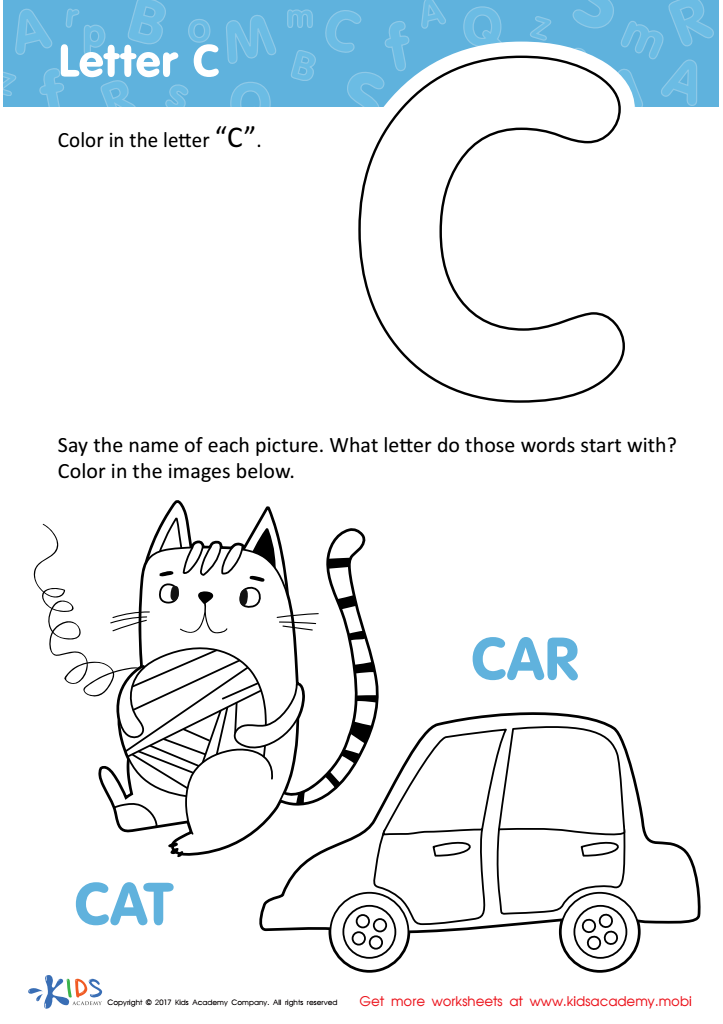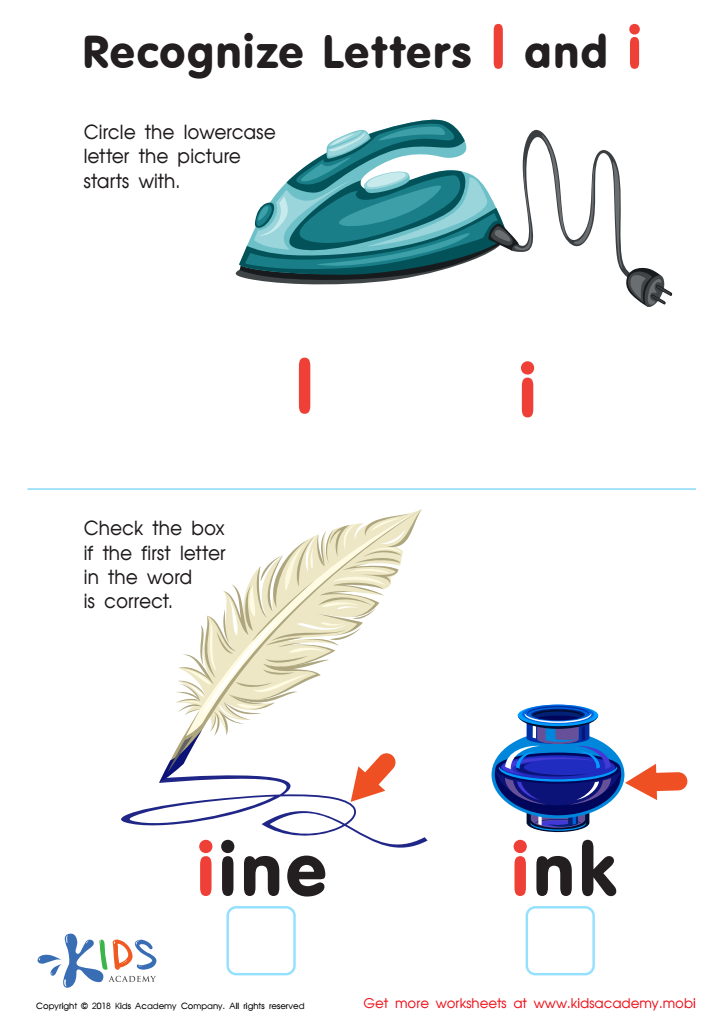Writing practice Normal Letter Recognition Worksheets for Ages 3-6
6 filtered results
-
From - To
Enhance your child's letter recognition with our engaging "Writing Practice Normal Letter Recognition Worksheets for Ages 3-6"! Tailored for young learners, these printable worksheets are designed to foster early literacy skills and boost confidence in identifying and writing both uppercase and lowercase letters. By tracing and practicing each letter, children will improve their fine motor skills and hand-eye coordination. Perfect for parents and educators, our comprehensive collection makes learning the alphabet fun and interactive. Download now to kickstart your youngster's writing journey and watch them develop essential reading readiness for future success!


Short Vowel /a/ Worksheet


Letter B Coloring Sheet


Letter A Coloring Sheet


Letter H Tracing Page


Letter C Coloring Sheet


Recognize Letters l and i Worksheet
Parents and teachers should place a high priority on writing practice and normal letter recognition for children aged 3-6 because these foundational skills are essential for literacy development and academic success. This developmental stage, often referred to as the "early literacy" phase, is a critical period during which children rapidly acquire the tools necessary for reading and writing. Effective practices in letter recognition and writing not only aid in memorizing the alphabet but also in understanding letter sounds and their respective formations.
A strong grasp of letter recognition facilitates phonemic awareness—the ability to hear, identify, and manipulate individual sounds in words—which is a crucial stepping stone toward reading fluency. Writing practice helps to hone fine motor skills, enabling young children to better control pencils or crayons and form letters accurately. Additionally, it enhances cognitive development by reinforcing the connection between spoken and written language.
Early exposure to writing and letter recognition has emotional and social benefits, as well. Children gain confidence in their abilities, contributing to a positive self-image as learners. It also sets the stage for a smoother transition into more structured learning environments, where they are expected to utilize these basic skills competitively. Thus, dedicating time and resources to these practices ensures that children are equipped with the essential skills needed to thrive academically and beyond.
 Assign to My Students
Assign to My Students















